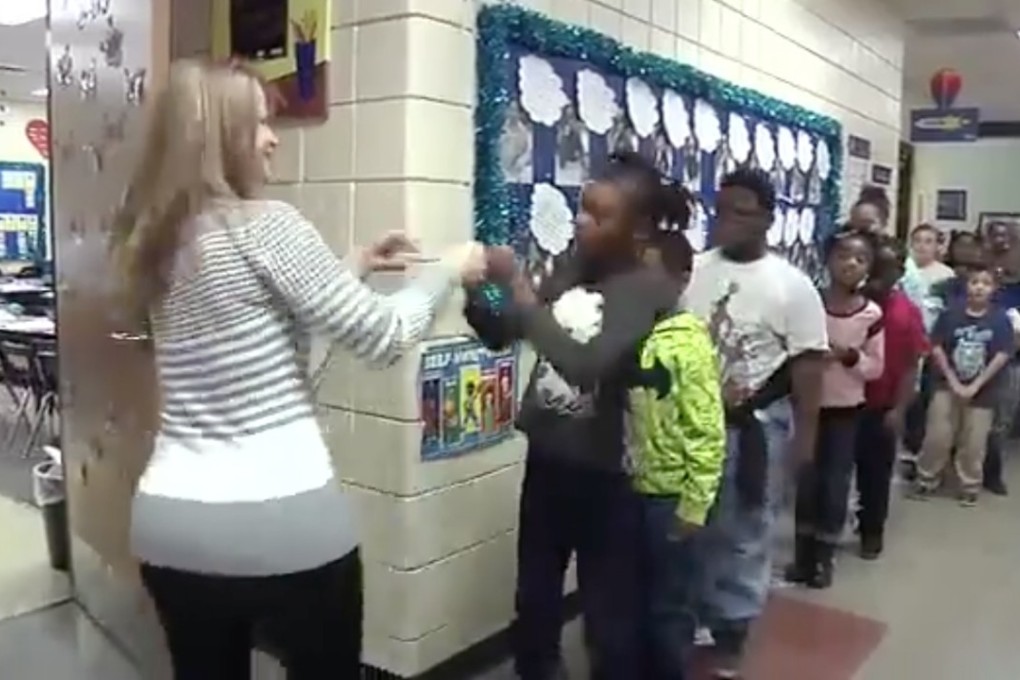Blowing Water | Hong Kong educators have forgotten that schooling should be fun
Luisa Tam says a viral video of US teacher shaking students’ hands before class illustrates that good education should not just focus on academic attainment

I came across a very inspiring video on Facebook recently in which a teacher in a US public school was seen starting her class in the morning by exchanging elaborate handshakes with her young students, which had been personalised to each and every one of them. It wasn’t difficult to see that they were so excited to shake their teacher’s hand as they queued outside the classroom awaiting their turn.
I was totally overwhelmed and inspired by this, but sadly this is something I have rarely seen in our own education system. In Hong Kong, our educators seem to have forgotten that schools should be fun places to inspire and excite students to learn by providing a warm and hospitable environment to nurture their love for learning.
A good education should not just focus on academic attainment but also embrace genuine learning, creative teaching and encourage the overall development of the child.
Ditch ‘stressful’ competency exams for 8-year-old pupils once and for all, Hong Kong parents demand
This Facebook video, which has gone viral with more than 49 million views, also illustrates how important it is for teachers to build a genuine connection with students. Although the Baptist University debacle has died down for now, a short clip is a critical lens that shows what we seriously lack in Hong Kong’s education; our educators’ inability to connect, collaborate, engage with students or instil creativity in them. They are also guilty of turning schools into boring and lifeless education factories driven merely by a culture of homogeneity.
I dare say that many of our local educators still cling to the conformist concept that learning should not be fun because the process of acquiring anything worthwhile cannot and should not be fun at all, let alone enjoyable.
In Hong Kong, schools have turned into academic torture dens and signs of academic burnout are becoming increasingly common in younger primary students, which could trigger low self-efficacy and low self-esteem. I have witnessed some of these problems in the young children of some of my friends.
Hong Kong parents take children to school despite classes being cancelled amid flu fears
If you ask any child who attends a local school in Hong Kong, most of them will tell you it’s hard to differentiate between schools and prisons, as children feel trapped and unfulfilled in their classrooms, day in and day out.
